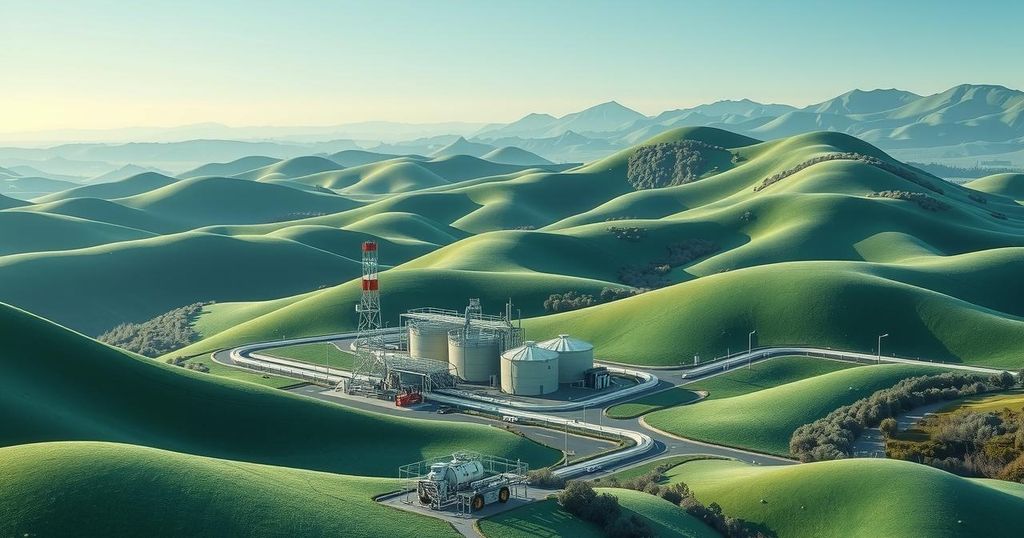Iraq is exploring alternatives to Iranian gas imports, seeking options from Gulf countries to reduce dependence on Iran due to U.S. sanctions concerns. With Iranian supplies inconsistent, Iraq is pursuing new gas sources, constructing LNG terminals, and aiming for energy self-sufficiency by curbing gas flaring in oil fields by 2028.
Iraq is actively seeking alternatives to its gas imports from Iran, with a focus on Gulf nations. This shift comes after the recent announcement from the Trump administration to end the sanctions waiver that permitted Iraq to purchase electricity from Iran, although gas imports are still allowable. Iranian gas and electricity fulfill approximately one-third of Iraq’s energy requirements.
Saad Jassem, an official from Iraq’s electricity ministry, emphasized the need for diversification in gas sources, stating, “We only had imports from Iran, but there are government directives and a political will to rely on multiple sources of imports.” Despite intentions to seek alternatives, officials confirmed that Iranian gas imports have not ceased yet, indicating a careful transition is being contemplated.
Tensions between Washington and Tehran heighten the urgency for Iraq to find alternative gas supplies. A U.S. diplomat remarked that the Iraqi government must make “swift progress” in reducing natural gas purchases from Iran. Iraq’s longstanding issues, including crumbling infrastructure and frequent power cuts, aggravate its dependence on Iranian gas.
Jassem noted the importance of preparing for a potential interruption in gas supplies, stating, “We must consider the worst-case scenario — if there is an interruption, we have prepared alternatives.” Qatar, the region’s largest natural gas producer, has shown willingness to assist Iraq, while Oman is also considered a viable option for gas supply.
Iraq is in the process of establishing two floating liquefied natural gas terminals in Khor al-Zubair, expected to operate by June, which have the potential to process between 14 to 19 million cubic meters daily. Jassem highlighted this initiative as crucial: “The question of energy is vital for citizens: cutting off gas would mean a significant reduction in electricity supply.”
Moreover, Iraq’s Prime Minister Mohammed Shia al-Sudani aims for self-sufficiency in gas by stopping gas flaring in oil fields by 2028. The ongoing U.S. sanctions on Iran complicate Iraq’s energy landscape, as Iranian supply has already been inconsistent, exacerbating challenges for its 46 million residents who face power shortages and public discontent during hot weather.
Even though Iraq and Iran have a renewed gas agreement allowing for substantial imports, current supply falls significantly short of expectations, contributing to ongoing electricity challenges and public protests.
In summary, Iraq’s pursuit of alternative gas sources from the Gulf, alongside developing domestic infrastructure, reflects its strategic response to reduce dependency on Iranian imports amid rising geopolitical tensions. The efforts also align with long-term goals for energy self-sufficiency. Continuous engagement with regional partners, particularly Qatar and Oman, highlights Iraq’s proactive measures to stabilize its energy supply and address electricity shortages, vital for its citizens’ well-being.
Original Source: www.wyomingnewsnow.tv




